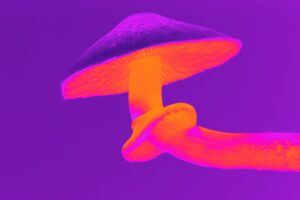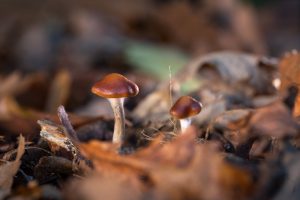Uncategorized
Navigating Altered Realities: Understanding the Mind and Body Shrooms Effect
Embarking on a journey into the realm of psychedelic mushrooms unveils a world of profound experiences, where the therapeutic potential of these fungi intersects with mental health. In this exploration, we delve into the intricate tapestry of effects that psychedelic shrooms offer, casting a spotlight on their therapeutic potency in the context of mental well-being. The Shrooms Effect extends beyond the conventional, promising a transformative journey for those seeking insights into consciousness, self-discovery, and emotional healing. As we navigate the mesmerizing landscape of psychedelic experiences, we unravel the unique impact these fungi have on perception, cognition, and emotions, offering a holistic perspective on their potential role in promoting mental well-being.
The Alchemy of Psilocybin
Delving into the alchemy of psilocybin unravels a captivating narrative of psychedelic transformation within the brain. Psilocybin, the enchanting compound found in psychedelic shrooms, serves as the key to unlocking therapeutic potential. As these fungi are ingested, the alchemical dance begins. Psilocybin undergoes a metabolic conversion to psilocin in the body, a process facilitated by enzymes. Once transformed, psilocin takes center stage, mimicking serotonin and binding to serotonin receptors, especially the 5-HT2A receptors, in the brain. This interaction sets off a cascade of effects, influencing mood, perception, and cognition. Far beyond inducing hallucinations, the alchemy of psilocybin triggers a profound alteration in consciousness, leading to introspection and a heightened awareness of one’s thoughts and emotions. The intricate interplay between psilocybin and serotonin receptors forms the crux of the Shrooms Effect, encompassing a spectrum of experiences that extend into the realms of therapeutic potential, personal insight, and spiritual exploration.
Rewiring Neural Pathways

Explore the neurological aspects of the shrooms effect, where psilocin influences neural pathways. From enhanced connectivity between brain regions to the potential for neuroplasticity, discover how psychedelic mushrooms may contribute to reshaping thought patterns and perspectives.
Navigating Mental Health Landscapes
Navigating mental health landscapes takes us on a profound journey, where the potential therapeutic effects of psychedelic shrooms come to the forefront. These fungi, rich in psilocybin, have become subjects of increasing interest in the realms of mental health exploration. Studies and anecdotal evidence suggest that shrooms may offer relief for conditions such as anxiety, depression, and PTSD. The Shrooms Effect on the brain is multifaceted, involving intricate interactions with serotonin receptors that can lead to altered perceptions and heightened introspection. As we delve into the evolving scientific landscape surrounding shrooms, it becomes evident that their potential therapeutic benefits extend beyond the psychedelic experience. Researchers and mental health professionals are investigating how carefully managed doses of psilocybin, combined with therapeutic support, could provide novel avenues for addressing mental health challenges. The nuanced interplay between the compounds in shrooms and the intricacies of mental health conditions offers a fascinating terrain for exploration, holding promise for those seeking alternative and transformative approaches to well-being.
The Psychedelic Sanctuary: Creating the Right Setting
Step into the importance of set and setting when considering the therapeutic shrooms effect. Understand how the environment, mindset, and intention play pivotal roles in shaping the nature of the psychedelic experience and its potential impact on mental health.
Illuminating the Shadows: Shrooms and Emotional Processing

Delving into the intricate relationship between psychedelic shrooms and emotional processing reveals a fascinating terrain of therapeutic potential. Psychedelic experiences induced by substances like psilocybin, found in magic mushrooms, often transcend the boundaries of ordinary consciousness. In this altered state, individuals may find themselves confronted with suppressed emotions, unresolved traumas, or deep-seated anxieties. The hallucinogenic effects of shrooms can act as a catalyst, bringing these emotional shadows into the light of conscious awareness. The psychedelic journey becomes a profound exploration, allowing users to navigate complex emotions, gain new perspectives on past experiences, and even experience emotional release. The introspective nature of the psychedelic experience, guided by set and setting, offers a unique opportunity for individuals to engage in a therapeutic process, potentially leading to profound insights, personal growth, and a more profound understanding of the self. As we illuminate the shadows with the aid of shrooms, the therapeutic potential for emotional processing within the psychedelic realm unfolds as a promising avenue for mental well-being and self-discovery.
Integration: Bridging the Psychedelic Experience with Everyday Life
Embarking on a psychedelic journey with shrooms is not merely a momentary escape but a profound exploration that extends far beyond the trip itself. Integration becomes a pivotal aspect of the psychedelic experience, representing the bridge between the insights gained during the trip and their practical application in everyday life. The post-trip phase is a delicate period where individuals have the opportunity to assimilate and make sense of the revelations unearthed in the altered state of consciousness induced by shrooms. Integration involves reflection, contemplation, and a conscious effort to incorporate these newfound perspectives into one’s daily routine. This process isn’t just about remembering the revelations; it’s about actively living them. It may involve adopting mindfulness practices, fostering healthier relationships, or pursuing personal and professional goals aligned with the profound realizations catalyzed by the psychedelic experience. Integration transforms the psychedelic journey from a singular event into a catalyst for lasting positive change, creating a harmonious connection between the mystical insights of the shroom trip and the tapestry of everyday existence.
The Future of Psychedelic Therapy

As we peer into the future, the landscape of mental health treatment is undergoing a revolutionary shift with the rising recognition of psychedelic therapy, particularly involving psychedelic shrooms. This transformative approach has transcended its counterculture roots and is gaining acceptance in mainstream medical and therapeutic circles. Clinical trials exploring the benefits of psychedelic substances, including psilocybin found in magic mushrooms, are revealing promising results in treating conditions such as depression, anxiety, and PTSD. The potential trajectory of psychedelic therapy envisions a paradigm shift in mental health care, moving away from traditional pharmacological approaches toward more holistic and patient-centered interventions. As cultural perceptions evolve and scientific understanding deepens, we anticipate an increasing integration of psychedelic shrooms into therapeutic practices, offering new avenues for healing and self-discovery. The future holds exciting possibilities as this once-marginalized realm becomes a legitimate and transformative tool in the broader landscape of mental health treatment.
Shrooms as Catalysts for Holistic Mental Well-being
In the synthesis of science, experience, and the profound, this exploration of the therapeutic shrooms effect on mental health invites us to reconsider the boundaries of conventional healing. As the psychedelic renaissance unfolds, the potency of shrooms as agents of mental well-being stands as a beacon of hope in the quest for holistic health.


